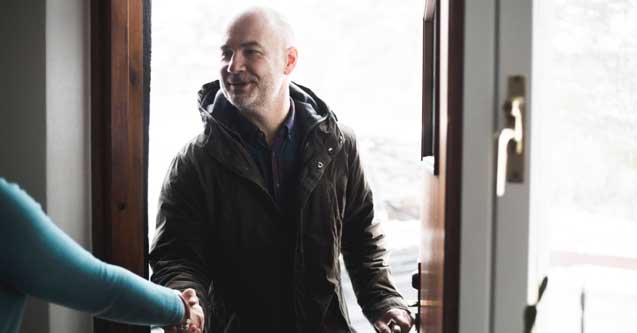Beware 'easy' money in tough times
14 October 2020

They target the vulnerable, they target people on Centrelink – those who are already poor and marginalised -- and once people get one ‘payday loan,’ they often get caught in this terrible debt spiral.”- Danielle Whyte, Salvation Army Moneycare Counsellor
There’s no doubt that the financial pressures placed on many households due to COVID-19 are greater than ever before. Business closures and shutdowns combined with uncertainty around how long this will last are causing many to feel anxious over how they will make it through.
In fact, The Salvation Army is now seeing large numbers of people who have never sought help before.
With the faltering Australian economy, Salvation Army Moneycare Financial Counsellor Danielle Whyte says it’s essential that struggling Australians resist ‘payday’ and other quick loans, as they can often lead to a crippling debt spiral.
“People we see are not getting these loans for things like holidays, but for the very basics such as paying a power bill, fixing an older car or paying rego,” says Danielle.
“These loans are very easy to apply for and get, but the implications can last for a very long time.”
Danielle says that once a person has taken out a loan, they are often bombarded with extra offers of money, which is very tempting to those who are most vulnerable in the community.
“Almost immediately you get other lenders sending through text messages offering you the loans. So, if things are tight and you have no other options, it can be quite easy to give in.”
Vulnerable and desperate
First referred to Danielle’s team six months ago, by the local Salvation Army Doorways caseworker, Scott was “drowning” under a number of payday and other quick loan repayment obligations.
Coming from a background of generational disadvantage, Scott is on a part-disability pension due to a range of health issues. Scott’s partner is also on a disability pension and was recently hospitalised.
As a result of COVID-19 closures, Scott lost the few hours of weekly work he had driving a shuttle bus for a club. He also had what Danielle describes as “a dodgy car loan, through a dodgy car dealership”.
“The main concern for me,” explains Danielle “was he just kept getting these [payday] loans and I couldn’t understand how he was getting [them]. I couldn’t walk away from the glaringly poor ‘responsible lending’ practices.”
Moneycare financial counsellors, such as Danielle, offer a free service and often guide those they are working with to take charge of their finances. They also advocate with lenders.
With significant effort and, at times, industry backlash, Danielle was able to get interest waived on several loans and negotiated repayment options with others.
She says that Moneycare, and the wider financial counselling sector, is actively lobbying government to get poor payday lending practices better regulated. To date they have not seen any significant response.
For those, like Scott, who are deep in a debt spiral, Danielle says the sense of fear and helplessness can be overwhelming.
“It’s really sad and what it does is put people who are already in poverty into a state of absolute hopelessness.”
While Danielle continues to work with Scott, his creditors and his Salvation Army Doorways case manager, she says there is no easy fix.
“The thing that always pops up with these loans is they’re easy to get – easier to get than welfare. Usually people who apply have exhausted all other resources, but the reality is that it is often a deep trap, and that easy fix can soon become a deep, deep hole of debt that only magnifies existing problems.”
Maintaining control of finances in tough times
It is important to understand that during these times there are free services available to help people effectively manage their money and explore their options. These services assist with negotiating payment plans for utility bills such as electricity; understanding how to apply for government assistance; advocating to mortgage providers, and more.
The Salvation Army’s Moneycare provides financial counselling as well as helpful money management courses such as Be the Boss. Designed to be taken over three weeks Be the Boss provides strategies and advice on how to get on top of your money.
In response to the current crisis and people’s varying needs and circumstances, all course modules are now available to be accessed in any order for those who wish to undertake them.
Being able to better manage our savings is a skill that most people would like to improve. During times of financial stress, it can be the difference between finding options and solutions or compounding the stress by being indebted to opportunistic lenders.
If you are looking for someone you can trust to have an important money conversation reach out to The Salvation Army’s free financial counselling service at Moneycare.
**Salvation Army Doorways provides emergency relief and holistic case management with referral to internal and external support services. Doorways aims to support people as they seek to make changes in their lives. Doorways teams often work hand-in-hand with Moneycare financial counsellors to assist individuals with regaining control of their finances.